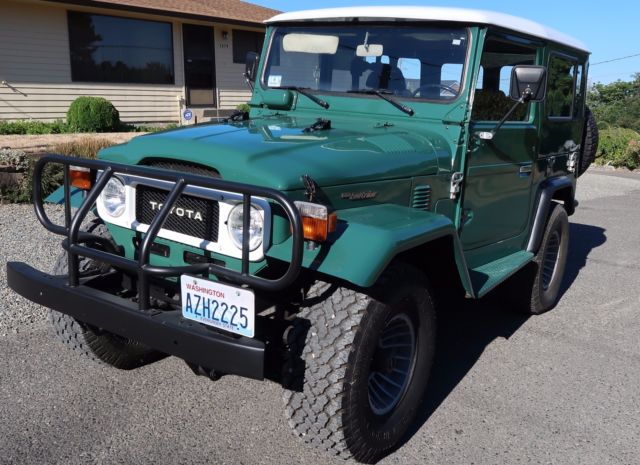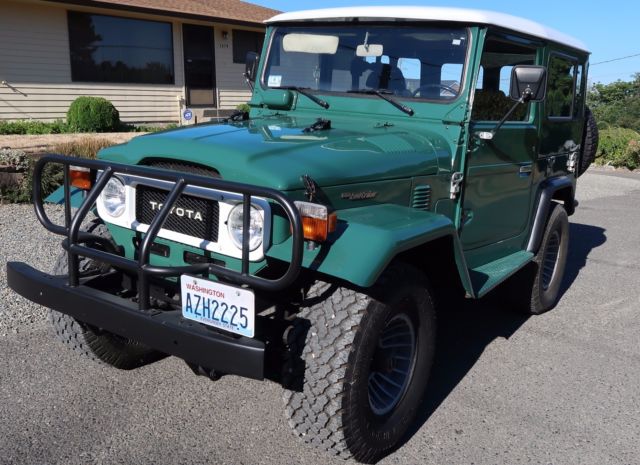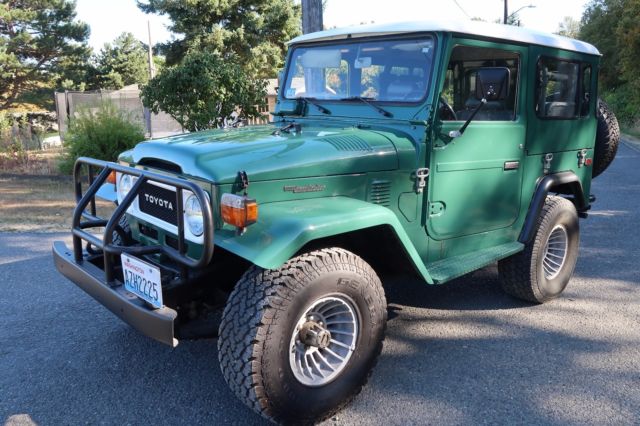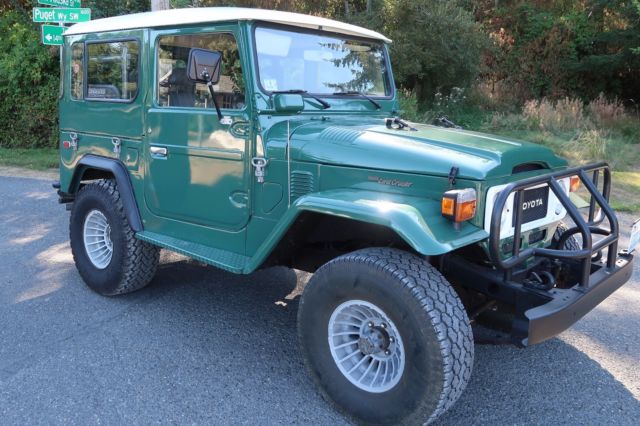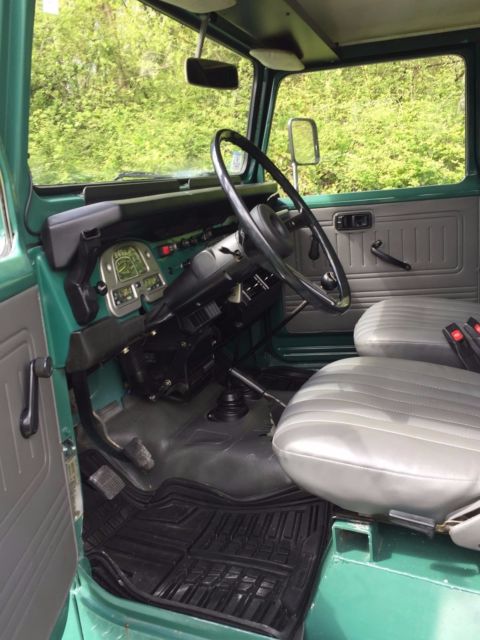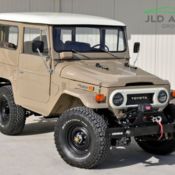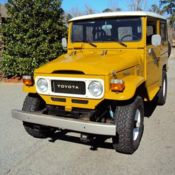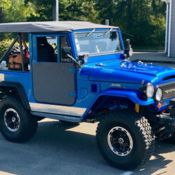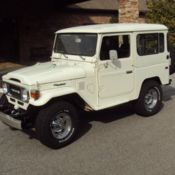1979 Toyota FJ40 Land Cruiser [Vintage][Showroom-quality][Exotic Hot Ride]
Technical specifications of Toyota FJ Cruiser 1979
| Price: | - |
|---|---|
| Condition: | Used |
| Item location: | Seattle, Washington, United States |
| Make: | Toyota |
| Model: | FJ Cruiser |
| Trim: | Land Cruiser |
| Year: | 1979 |
| Mileage: | 63,400 |
| Color: | Green |
| Engine size: | F2 |
| Number of cylinders: | 6 |
| Fuel: | Gasoline |
| Transmission: | Manual |
| Interior color: | Black |
| Drive side: | Left-hand drive |
| Vehicle Title: | Clear |
| You are interested? | Contact the seller! |
Description
For Sale by Owner 1979 Toyota FJ40 Land Cruiser [Vintage][Showroom-quality][Summer Hot Ride][Investment]
This Showroom Quality 1979 Toyota FJ40 Land Cruiser was purchased new and remained with the original one owner in Seattle, WA., until purchased by the current owner in 2013. It is in excellent restored condition with just 63,400 miles. The restoration ended in 2014, over $10,000 in a one year extensive restoration. The F2 overhead valve straight six displaces 4.2 liters and offers 135 horsepower with 4-speed manual transmission. There is a four-speed gearbox, original tool kit, owner's manual, and original cans of touch-up paint. The vehicle is finished in Toyota Green paint. Clean Carfax, AutoCheck & Title. Vehicle located in Seattle, WA, we will arrange carrier for out-of-state buyers.
Asking $26,000 OBO. Best value in market in 2017 by Comp Analysis & Historical Price data. Hot ride for the summer and great investment that ONLY goes up in value over time.
Kev - (925) 899-8810 (Text or Call 24/7 to schedule appointment).
The Toyota FJ40 Land Cruiser was developed in the early-1950s and was based on the Willys M38 Jeep. When Toyota and Land Rover went head-to-head in the 1960s, Toyota won nearly every encounter. The short-wheelbase FJ40 was rigid and durable and made considerable inroads into the Jeep market in the United States in the 1960s and 1970s. Toyota then re-focused its attention to the rest of the world in the 1980s. The barebones FJ40 was built in Brazil as the Bandeirante, in Venezuela as the Macho, and Australia still offers the updated 70 series for their rugged terrain. The final FJ40s were imported to the United States in 1983, after being replaced by the Land Cruiser SUV.
Considered to be one of the most unforgettable off-road SUV's of all time, the Toyota Land Cruiser FJ 40 was part of the Toyota Landcruiser 40 series. Introduced in 1960, the FJ 40 was available in a variety of versions through 1984. From 1958 until 2001 the FJ 40 was produced in Brazil as the Toyota Bandeirante. Larger than the Jeep CJ, the majority of 40 series Land Cruisers were built as two-door models. Today the FJ 40 is incredibly popular as a restore model thanks to its basic design. New steel presses helped Toyota make many production changes upgrading the 20 series to the now classic 40. The Land Cruiser received much-needed low-range gearing, while the FJ40 was given a new 125 hp 3.9-liter engine.
The F in the name stood for the F engines, while the 'J' stood for Jeep. The short wheelbase was dubbed BJ40/41/42, the middle wheelbase BJ43/44/46, and the long wheelbase with a Diesel engine was dubbed HJ45/47. The Brazilian-built Land Cruisers were dubbed FJ25 if they were topless, and FJ25L with a soft top roof. In 1961 the name was changed to Bandeirante, and ones built from 1962 through 1993, with the Mercedes-Benz engines received OJ50/55 series, and ones built from 1994 through 2001 with Toyota engines, were given BJ50/55 series model codes. The Bandeirante's Mercedes-Benz built Diesel engine pumped out 78 HP.
The J40 series was introduced with 90-inch, 96-inch and 104 inch wheelbases. The FJ40 was available with two different 6-cylinder gasoline engines. From 1960 through 1975 the SUV with 3.8-liter displacement and 125 hp was produced. In 1975 the replacement second generation 2F engine was more robust with 135 horses. In 1963 the longer 116-inch wheelbase FJ45-B pickup and cab-chassis were added to the lineup.
